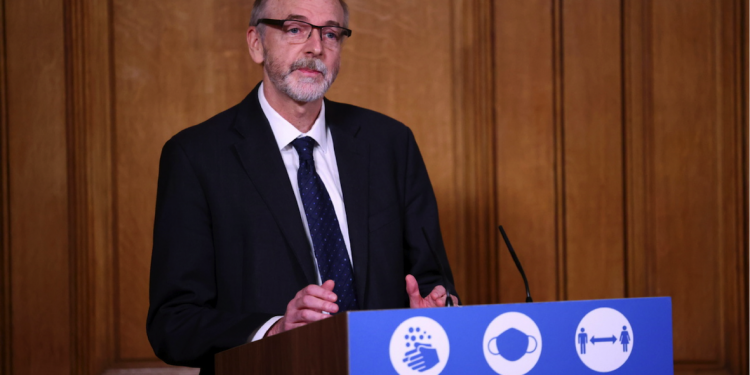Herd immunity has no chance- experts warn

Director of the Oxford Vaccine Group Andrew Pollard attends a virtual news conference on the ongoing situation with the coronavirus disease (COVID-19), at Downing Street, London, Britain. [Photo]
LONDON – A top United Kingdom disease experts have warned yesterday achieving herd immunity against the novel coronavirus is an impossibility and the world must prepare for the pathogen to become endemic to the global population.
Andrew Pollard, who is head of the Oxford Vaccine Group said more transmissible versions of virus may emerge and affect vaccinated population.
Any public health strategy that relies on achieving herd immunity, which is where those who are not vaccinated receive indirect protection, cannot be relied upon since vaccinated people are still transmitting the virus, Pollard said.
“We know very clearly with coronavirus that this current variant, the Delta variant, will still infect people who have been vaccinated and that does mean that anyone who’s still unvaccinated, at some point, will meet the virus,” Pollard told members of Parliament at a meeting about the UK’s pandemic response.
He said that in the case of some diseases, such as measles, vaccines are efficient at both preventing illness and stopping spread, so over time the disease can be eradicated from communities. In the case of COVID-19, vaccines are reducing the risk of hospitalization and death, however numerous studies have shown that treated people can still get and spread the virus.
“I think we are in a situation here with this current variant where herd immunity is not a possibility because it still infects vaccinated individuals,” said Pollard, who played a key role in the development of the AstraZeneca jab.
Pollard said that there is a possibility that a new variant will emerge that is even better at transmitting in vaccinated populations. “So, that’s even more of a reason not to be making a vaccine program around herd immunity,” he added.
“I think this next six months is a really important consolidation phase and in that shift from the epidemic to the endemic, which is living with COVID-19,” Pollard said.
An endemic disease is one that is permanently present in a community or region. “That doesn’t mean that we live with it and put up with it-we still have to manage those cases of patients who become unwell with it.”
Following Pollard’s comments, Andrew Hayward, a professor of infectious disease epidemiology at University College London, said that COVID-19 infections are likely to rise seasonally in a similar way to the fl u.
“We need to get used to the concept that this will become what we call an endemic disease,” Hayward told the BBC this week. “A disease that is with us all the time, probably transmitting seasonally a bit like the flu where we see winter outbreaks.”
Hayward said that, in the case of COVID-19, herd immunity could never be achieved, even in a fully-vaccinated population.
“If you have got a vaccine that only prevents infection in about 60 percent then, even if you have got everybody vaccinated, it’s not feasible to reach that herd immunity threshold, whereby the disease would be eradicated,” said Hayward, who acts as an advisor on the UK government’s New and Emerging Respiratory Threats Advisory Group.






